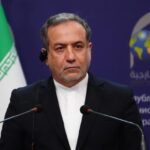Truce follows days of cross-border airstrikes; leaders cite humanitarian concerns and regional stability
In a major diplomatic development, Syria and Israel have agreed to an “immediate and comprehensive” nationwide ceasefire, following a sharp escalation of military activity earlier this week. The announcement was made on Sunday by both Syrian President Ahmed al-Sharaa and Israeli Prime Minister Benjamin Netanyahu, and was confirmed by Tom Barrack, the U.S. special envoy for Syria and ambassador to Turkey.
The ceasefire follows several days of Israeli airstrikes in Syrian territory, which Israeli officials claimed were launched to protect the Druze minority living in southern Syria. Syria responded with retaliatory strikes, raising concerns about a broader regional conflict.
President al-Sharaa issued a formal statement declaring the ceasefire, emphasizing the urgent need to halt further bloodshed and protect the sovereignty and unity of Syrian territory. “This decision has been taken in light of the critical circumstances the country is going through, and out of concern to spare Syrian blood, preserve the unity of Syrian territory, ensure the safety of its people, and fulfill national and humanitarian responsibilities,” he said.
Israeli Prime Minister Netanyahu also confirmed the agreement, stating that Israel welcomes the opportunity to de-escalate tensions and stabilize the northern border. He added that Israel’s primary concern remains the protection of all civilians, particularly minority communities under threat.
The announcement comes after intense behind-the-scenes diplomacy involving American and Turkish intermediaries. U.S. envoy Tom Barrack played a key role in brokering the deal and shared the breakthrough via social media, writing: “This is a critical step toward regional de-escalation and humanitarian stability. We commend both sides for their willingness to stand down.”
International response has been largely positive. The United Nations has called the ceasefire “a hopeful moment,” and several EU leaders have expressed support for the agreement, urging both nations to commit to its implementation and pursue a longer-term political solution.
Human rights organizations welcomed the move, especially given the rising civilian toll in southern Syria over recent weeks. Reports from the ground indicated dozens of casualties and hundreds displaced due to the recent air raids.
While the ceasefire is being hailed as a turning point, experts caution that its durability will depend on continuous dialogue, mutual restraint, and international monitoring. Previous ceasefires between Syria and Israel have often collapsed due to political tensions or militia activity along the border.
As of now, the Syrian government has instructed all military units to suspend offensive operations, and Israeli forces have reportedly halted planned air missions in the region. Further details on monitoring mechanisms and enforcement are expected in the coming days.



